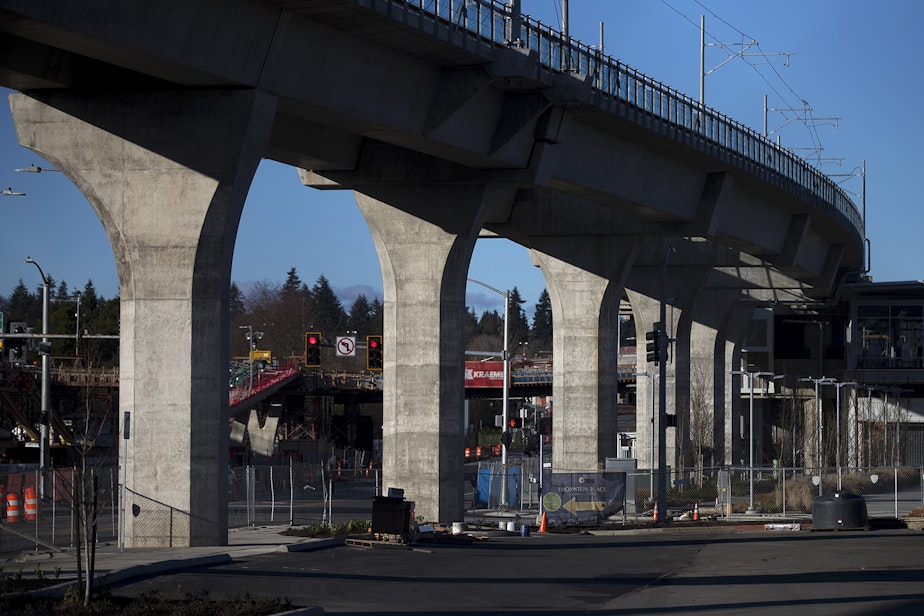Plan for the worst, or hope for the best? Sound Transit board is torn

Things are heating up at Sound Transit. Board members face difficult decisions about which projects to delay, given rising construction and land costs.
But with the direction politics and the economy are going, some say it may be time to slow down the disaster planning before creating panic.
From the Graham Street Station to an Everett Parking Garage, Sound Transit is considering delays on over 30 different projects.
It's the agency's attempt to respond to an economy that has twisted and turned Sound Transit's budget projections more violently than a roller coaster over the last year and a half.
Early on the pandemic, Sound Transit projected as $12.5 billion shortfall mostly due to a projected decline in sales tax. This launched Sound Transit on a painful process known as "realignment," which eventually gave birth to the list of projects that could be delayed.
As the pandemic progressed, things started to look a little rosier. When the economy improved, the original shortfall shrank even further until it nearly disappeared (it's now about one twelfth of its original size).
But before officials could start celebrating, a $12 billion problem emerged: Land costs and construction costs had risen far beyond expectations.
Sponsored
“Anybody that’s tried to buy a 2x4 or a piece of plywood knows those prices have tripled over the last year," said Snohomish County Executive Dave Somers, one of Sound Transit's board members, at a meeting on June 3 . "Who would have thought? Same with Steel, concrete, everything. If you would have asked me a year and a half ago what would happen to land values, I would have thought they'd go down, and instead they've spiraled out.”
But as the cost of materials have spiked, Sound Transit has gotten signs that help is on the way. The Biden administration has promised a couple hundred million. There's been an increase in how much money Sound Transit can borrow. And the agency has found a few more ways to save money, too. All these things have whittled the shortfall down to $8 billion.
The small pieces of good news have added up, leading to a disconnect between the board leadership, who are already committed to the realignment process, and other board members.
After a lengthy presentation showing which projects could be slowed down two, six or even ten years, County Councilmember Joe McDermott expressed frustration with what he saw as lack of clarity in how different projects were identified for potential delay. "Mr. Chair, I'm pretty lost at the moment," he said. "What were the principles and values that framed each one of them?" he asked.
Seattle Mayor Jenny Durkan warned, “I think we are barreling towards making a decision that’s among the worst decisions we could make as a board for the region.” As an example, she mentioned the Graham Street Station, where multiple stakeholders have invested in housing to help meet address Seattle's affordable housing shortage. What would a six year delay in construction of that station mean for access to jobs by people moving into that housing?
Sponsored
King County Executive Dow Constantine said “The process we’re being asked to endorse, of delay and postponement in face of still speculative challenges, is just taking the easy way out.”
Meanwhile, board member and King County Council Chair Claudia Balducci is working on a proposal to push the design of Sound Transit's system further along, in order to find more cost savings.
Sound Transit CEO Peter Rogoff has been meeting with White House officials, showing them PowerPoint slides that list all the reasons "Sound Transit is uniquely positioned to deliver Biden administration priorities."
If Congress sees fit to throw significant funding at Sound Transit, philosophical differences like those shown at Thursday's Sound Transit board meeting over whether to plan for the worst or hope for the best will likely evaporate.




